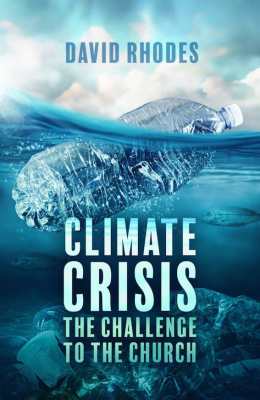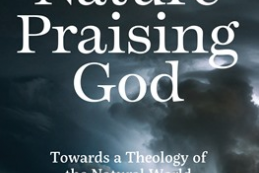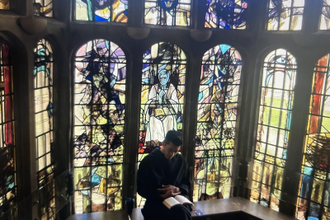Book: Climate Crisis: the Challenge to the Church

First of all a confession: I'm a huge fan of David Rhodes' books. A former journalist who seeks the truth by not being afraid to question what he sees, David has a rare gift for taking a well-known story and turning it on its head.
Like all David's books, Climate Crisis: the Challenge to the Church is an easy read. However don't be fooled into thinking the content is lightweight. Whilst the style may be accessible the questions it throws up demand a radical re-examination of the Gospel. We are challenged to move away from the comfort and safety of what David calls our 'tribe' (the Church) with its strong focus on personal salvation and into the riskier, controversial area of questioning unjust structures and then, more controversial still, doing something to change them. To quote James 2:15-16, 'If one of the brothers or one of the sisters is in need of clothes and has not enough food to live on, and one of you says to them, "I wish you well; keep yourself warm and eat plenty," without giving them these bare necessities of life, then what good is that?' (New Jerusalem Bible).
Despite the title this book is much more than a passionate plea to take climate change seriously for the sake of our children and grandchildren; it is a radical re-vision of the Christian tradition which, David argues, over the centuries from St Paul, through St Augustine, the Crusades, the Reformation and right up to the present day has subverted and buried the true meaning of Jesus' life and teachings, replacing it with an emphasis on sin and personal salvation which has eclipsed the key message to love our neighbour. And loving our neighbour means breaking down barriers of class, wealth, social status, ethnicity, gender, our 'tribes', and treating everyone as equal. In place of the image of a sometimes vengeful and judgemental God operating in a powerful all-male environment, we are presented with a nurturing and loving God as exemplified in the story of the prodigal son (Luke 15: 11-32). Here there are no questions, no recriminations, just a tender embrace from father to son. Rembrandt captured this movingly in his masterpiece The Return of the Prodigal Son (1669), described by renowned art historian Kenneth Clark as possibly "the greatest picture ever painted". Look closely and you will see that one of the father's hands embracing his son is large and masculine, the other smaller, gentle, feminine. The artist, who like the journalist sees and questions, understands that God is both father and mother.
After Jesus died his followers were left with two choices: carry on his mission to liberate the poor and downtrodden or build on the existing model of organised structures of worship. They had seen Jesus put to death. His way was a dangerous path to tread. Doubtless they were afraid. He had warned them that if they were to carry on his work they must pick up their cross and follow where he had gone (Matthew 16:24). Gradually they slipped into the old ways, forming what became the Church with a hierarchy whose model is still with us today. The women who were important to Jesus' vision were sidelined and an all-male leadership formed. Women in the Church, especially in the Catholic Church, remain sidelined to this day.
But was this the model Jesus wanted, with its rules and regulations? After all, when he was alive he cared little for rules and regulations, save for the command to love (Matthew 22: 39). Although he spent time teaching and in quiet prayer he also loved to socialise and especially enjoyed the company of those whom the church leaders shunned: tax collectors, prostitutes, outcasts, the poor. As David says, "By sharing his food with low-status people, Jesus is not simply expressing his love and the love of God for the poor, he is demolishing the barriers that segregate different groups." (ch.3, p.32)
But Jesus also had a love for the rich, witness the story of the wealthy young man (Mark 10: 21). In other words, his 'church' was open to all.
If Jesus were among us today who would he associate with? Have his lessons been buried under a mound of dogma and tradition? This book challenges us to find a way back to the real Jesus and to become true disciples. Only then will the Church(es) find the courage to speak with one voice for the sake of people and planet. Only then will it rediscover its true mission and ditch the dogma and divisions that blind us to the truth. Let's pray that happens before it is too late.
David Rhodes is a former journalist and Anglican vicar. He writes and lectures on social justice and spirituality.
Climate Crisis: the Challenge to the Church by David Rhodes was published by Kevin Mayhew in April 2020.
Buy the book here: www.kevinmayhew.com/products/climate-change-the-challenge-to-the-church-1501666
Find more books by David Rhodes also on: www.turbulentbooks.co.uk
and SPCK: https://spckpublishing.co.uk/catalogsearch/result/?q=David+Rhodes (rather than using Amazon!)


















